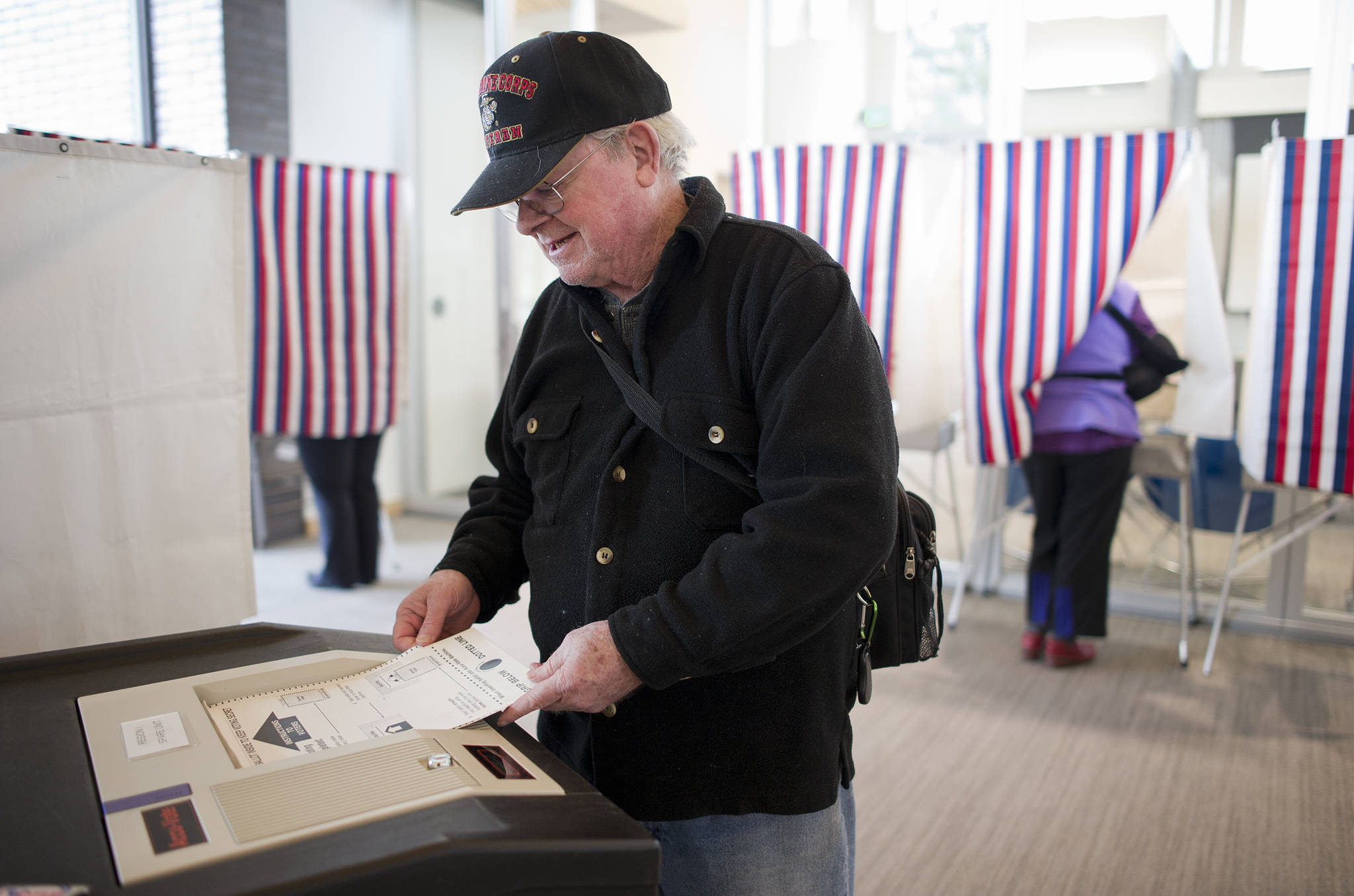The Alaska Division of Elections is in the middle of preparations for this fall’s statewide primary and general elections, but in a meeting Wednesday, the division showed it also has its eyes on 2020.
In a meeting of the statewide election policy task force, division officials said they are preparing to acquire new voting equipment even as they consider whether the state should change the way it conducts elections.
“It’s kind of two separate projects. It’s equipment replacement and it’s expanding options for ballot access in the future,” Josie Bahnke, the division’s director, said by phone after the meeting.
Nothing will change before this year’s Aug. 21 primary or the Nov. 6 general election. Voters will still go to polling stations across the state, they’ll still pick up pens, and they’ll still fill in ovals on paper ballots, then feed those ballots into 20-year-old scanners.
Those scanners are aging, and the state hopes that it won’t have to use them by 2020. This year, the Alaska Legislature appropriated $4.8 million in the statewide construction and renovation budget for new equipment.
The state could buy new machines or lease them, but Bahnke said the state is using the replacement process as an opportunity to examine voting in a fresh way.
“The Alaska Division of Elections (DOE) is at a critical juncture,” said a report presented to the work group. “Alaska’s voting equipment and technology are outdated, difficult to repair, and prone to failure. At the same time, there are concerns about the security of the voting process and increasing numbers of voters are choosing to cast their ballots in ways other than the traditional voting in person at their local precinct.”
On Wednesday, members of the task force, which includes elected officials, municipal clerks, and members of civic organizations from across the state, were presented with the results of surveys conducted across the state. Those surveys ruled out a strictly vote-by-mail elections process but seemed to indicate support for a hybrid model, one where ballots are mailed to voters, but voters then have multiple means to submit a completed ballot.
That hybrid system can’t be operated under current law, so the division has hired Resource Data Inc. to determine what statutory changes would be needed and how much it would cost.
The same company is analyzing other ways to conduct elections, and a full report is expected in December, after the 2018 vote is finished.
Bahnke said the new equipment being considered will have the flexibility to work regardless of any changes made to the state’s voting system.
• Contact reporter James Brooks at jbrooks@juneauempire.com or 523-2258.

